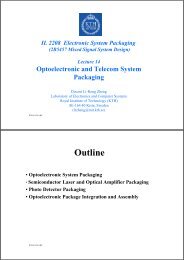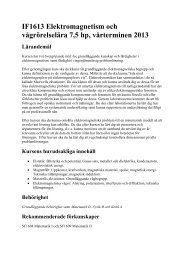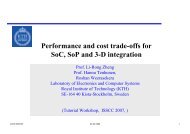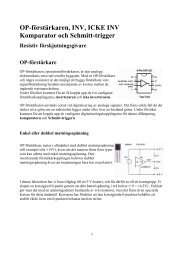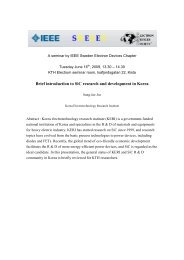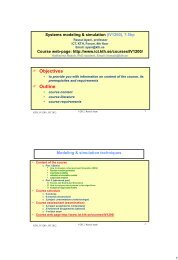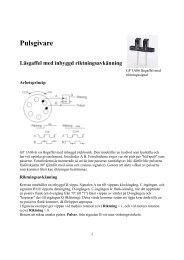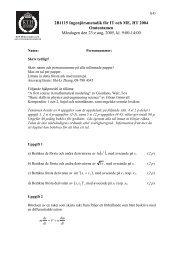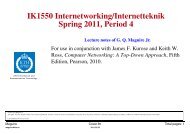An Overview of the PKCS Standards
An Overview of the PKCS Standards
An Overview of the PKCS Standards
You also want an ePaper? Increase the reach of your titles
YUMPU automatically turns print PDFs into web optimized ePapers that Google loves.
Page 2<br />
ERROR! STYLE NOT DEFINED.<br />
extent <strong>of</strong> being able to share certificates and to translate encrypted and/or<br />
signed messages back and forth between PEM and <strong>PKCS</strong>.<br />
2. To extend beyond PEM in being able to handle arbitrary binary data (not<br />
just ASCII data), to handle a richer set <strong>of</strong> attributes in (extended)<br />
certificates, to handle Diffie-Hellman key agreement [DH76], and to handle<br />
a richer set <strong>of</strong> features in digitally signed and enveloped data.<br />
3. To describe a standard suitable for incorporation in future Open Systems<br />
Interconnection (OSI, described in X.200) standards. The standards here<br />
are based on <strong>the</strong> use <strong>of</strong> OSI standard ASN.1 (Abstract Syntax Notation<br />
One, described in X.208) and BER (Basic Encoding Rules, described in<br />
X.209) to describe and represent data.<br />
<strong>PKCS</strong> describes <strong>the</strong> syntax for messages in an abstract manner, and gives complete details<br />
about algorithms. However, it does not specify how messages are to be represented,<br />
though BER is <strong>the</strong> logical choice. Thus <strong>PKCS</strong> implementations are free to exchange<br />
messages in any manner, depending on character set, record size constraints, and <strong>the</strong> like,<br />
as long as <strong>the</strong> abstract meaning <strong>of</strong> <strong>the</strong> messages can be preserved from sender to recipient.<br />
The <strong>PKCS</strong> standards are <strong>of</strong>fered by RSA Laboratories to developers <strong>of</strong> computer systems<br />
employing public-key technology. It is RSA Laboratories' intention to improve and refine<br />
<strong>the</strong> standards in conjunction with computer system developers, with <strong>the</strong> goal <strong>of</strong> producing<br />
standards that most if not all developers adopt.<br />
The role <strong>of</strong> RSA Laboratories in <strong>the</strong> standards-making process is five-fold:<br />
1. Publish carefully written documents describing <strong>the</strong> standards.<br />
2. Retain sole decision-making authority on what each standard is. This<br />
includes arbitrary object identifier choices, etc.<br />
3. Solicit opinions and advice from developers on useful or necessary changes<br />
and extensions.<br />
4. Publish revised standards when appropriate.<br />
5. Provide implementation guides and/or reference implementations.<br />
Thus <strong>the</strong> standards-making process is not <strong>the</strong> usual committee-oriented method.<br />
This note is divided into seven sections including this one. Section 2 gives some<br />
terminology. Section 3 addresses <strong>the</strong> question, "What needs to be standardized?" Section<br />
4 summarizes <strong>the</strong> <strong>PKCS</strong> family and Section 5 compares <strong>PKCS</strong> with o<strong>the</strong>r standards.<br />
Section 6 presents some open issues and Section 7 concludes <strong>the</strong> note.





